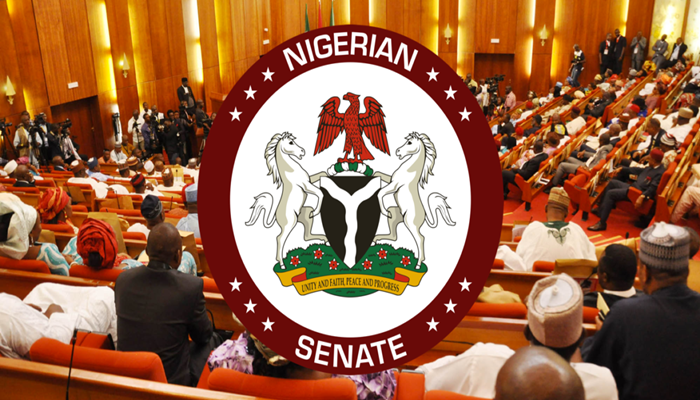
- to tackle technology, environmental sciences knowledge deficit
The Senate has approved the establishment of the Federal University of Technology and Environmental Sciences in Iyin-Ekiti, Ekiti State with a mission to address knowledge deficit in the fields of technology and environmental sciences.
The red chamber gave its approval after a bill seeking the establishment of the new tertiary institution was extensively debated and unanimously ratified at the plenary at the Senate Chamber in Abuja.
The Senate also presided over by the Deputy President of the Senate, Senator Bara Jubrin, subsequently referred the bill to its Committee on Tertiary Institutions and Tertiary Education Trust Fund (TETFund) for further legislation and other considerations.
The bill, sponsored by the Leader of the Senate, Senator Opeyemi Bamidele, elicited overwhelming support of the senators across all political divides, attesting its significance to developing world-class technologists and human resources that would sustainably manage the country’s economy.
First initiated in the ninth National Assembly, the bill was brought back for consideration at the Senate Chambers on October 17, 2023 with specific focus on addressing knowledge deficit gaps in the fields of technology and environmental sciences.
Explaining its significance at the plenary, Bamidele specifically observed that the passage of the bill into law would develop world-class technologists as well as human resources for exponential economic growth and sustainable development.
Bamidele further explained that the purpose of the bill “is to create more access to university education in view of a large number of qualified candidates, who are annually stranded in attempts to gain admission into the universities of their choice across the federation.
He noted that the core objectives of the university “are, first and foremost, to set up an ultra-modern institution that will develop world-class technologists as well as human resources that can sustainably manage our nation’s economy by providing technical and management expertise at the highest level.”
“The university, when fully established as proposed, will definitely advance knowledge through edge-cutting research and nurture unique technological innovation, entrepreneurship and wealth management in its core areas of specialisation.
“The enactment of this bill will help in transforming the technological and educational fortune in producing the desired manpower and expertise that Nigeria is yearning for to exponentially speed up our economic growth and ensure sustainable development.”
Also at the plenary, Deputy President of the Senate, Senator Barau Jubrin; Chairman, Senate Committee on Defence, Senator Ahmed Lawan; Chairman, Committee on Navy, Senator Gbenga Daniel; Chairman, Senate Committee on the Environment, Senator Seriake Dickson; Chairman, Senate Committee on National Planning and Economic Affairs, Senator Abdul Ningi and Vice Chairman, Senate Committee on Inter-Parliamentary Affairs, Senator Victor Umeh, three their weight behind the establishment of the bill.
Lawan, also former President of the Senate, explained how the bill for the establishment of a new tertiary university was initiated in the ninth National Assembly; scaled through the second reading; considered at the public hearing and the report of the committee adopted.
He, however, observed that the committee conference of the Senate and House of Representatives could not be set up before the end of the ninth National Assembly, hence, necessitating the re-initiate the bill for legislative consideration.
He explained that he bill “is innovative and worthwhile because technology and environmental sciences are very important, indeed crucial, for every country worldwide, especially in the 21st century, to achieve development in all ramifications.
“If we want to develop in this country, like most developed countries worldwide, we have to move away from being extremely traditional. We cannot continue with conventional and traditional approach to education, especially tertiary education.
“In most cases, outdated courses are taught in our schools, even in our universities. Again, this is the 21st century, and we must do things the 21st century was. Human beings, more appropriately human resources, should be the source of developing our country.
“We have focused oil and gas from the 1950s to date. We are still grappling with poverty, unemployment and other social challenges. Some countries have nothing, but human beings. Yet they have recorded tremendous progress in nearly all sectors of their economies. A good example is Singapore.
“Aside, most countries are now embracing knowledge-based economies. I believe the time is right. When we establish a new institution, it should be an institution that will provide education and enlightenment for the 21st century development agenda.”
Also, at the plenary, Umeh corroborated Lawan’s position on the establishment of the university, pointing out that the university, when eventually established, would focus on technology and environmental sciences.
Umeh, elected on the platform of the Labour Party, said: “In this country, time has come when we shall be establishing specialised universities to pursue certain areas and fields of knowledge.
“By focusing on the advancement of technology and environmental sciences, we are confining this university to these two important areas. When we produce graduates from this university, we will be thinking of graduates with excellent knowledge.”
In his argument, Dickson emphasised the significance of quality education for national development, observing that there could not be too many universities citing the population of Nigeria currently standing at 225,527,644 and annually growing 2.78 percent according to the data obtained from the United Nations.
Dickson, former Bayelsa State Governor and a member of the Peoples Democratic Party, said: “Investment in education, for some of us, is the most important investment any person or government can embark upon.
“Every other form of development – roads, bridges, or any other infrastructure – however spectacular or however expensive, at the end of the day, is brick and mortal.
“But investment in education, human capital development, is the only investment in terms of benefits, in terms of positive effects on the society and in terms of human capital development from generation to generation.”
Credit: Thisday






